Grants and Funding for Plastic Manufacturing in Quebec in 2026
Accelerate modernization, automation, and decarbonization with targeted programs. Identify the right grants for injection molding, extrusion, thermoforming, and recycling.
Quebec offers a robust mix of provincial and federal funding to help plastic processors invest in equipment, innovation, Industry 4.0, circular economy projects, and workforce skills. Programs support injection molding, extrusion, blow molding, thermoforming, compounding, and recycling across Montréal, Laval, Québec City, and every region. This directory explains key grant types, eligibility criteria, application tips, and how to combine tax credits and subsidies for maximum impact.
42 opportunities available

Grant and FundingOpen
ÉcoPerformance — Recommissioning of building mechanical systems
Gouvernement du QuébecFunding to optimize the operation of building mechanical systems
Eligible Funding
- Maximum amount : 100,000 $
- Up to 75% of project cost
Eligible Industries
- Agriculture, forestry, fishing and hunting
- Manufacturing
- Educational services
- Other services (except public administration)
Types of eligible projects
Environment and Climate

Grant and FundingClosed
GHG Challenge Program - Industry
Environnement Québec (MELCC)Supports major industrial projects reducing greenhouse gas emissions
Eligible Funding
- Maximum amount : 50,000,000 $
- Up to 75% of project cost
Eligible Industries
- Mining, quarrying, and oil and gas extraction
- Manufacturing
Types of eligible projects
Environment and ClimateInnovation

Grant and FundingOpen
Economic development program to help revitalize territories (DEPART)
Investissement Québec (IQ)DÉPART supports economic diversification and growth in targeted areas
Eligible Funding
- No Condition
Eligible Industries
- Manufacturing
- Information and cultural industries
- Accommodation and food services
Types of eligible projects
TechnologyConstruction and Renovation Business BuyoutInnovation

Grant and FundingOpen
Innovative Projects Program
Hydro-QuébecSupports innovative, energy-efficient projects for multi-building developments
Eligible Funding
- Maximum amount : 12,000,000 $
- Up to 75% of project cost
Eligible Industries
- Agriculture, forestry, fishing and hunting
- Construction
- Manufacturing
- Wholesale trade
Types of eligible projects
TechnologyEnvironment and ClimateInnovation
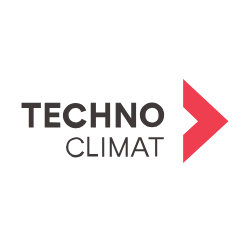
Grant and FundingOpen
Technoclimat
Environnement Québec (MELCC)Financial assistance for the demonstration of new technologies in Quebec
Eligible Funding
- Maximum amount : 3,000,000 $
- Up to 50% of project cost
Eligible Industries
- Agriculture, forestry, fishing and hunting
- Utilities
- Construction
- Manufacturing
Types of eligible projects
TechnologyEnvironment and ClimateInnovation

Partnering and CollaborationGrant and FundingExpert AdviceSuspended
Financial support to assess your energy use Hydro Quebec
Hydro-QuébecUp to $50,000 for energy performance analysis and optimization
Eligible Funding
- Maximum amount : 50,000 $
- Up to 40% of project cost
Eligible Industries
- Utilities
- Construction
- Manufacturing
- Wholesale trade
Types of eligible projects
Environment and Climate
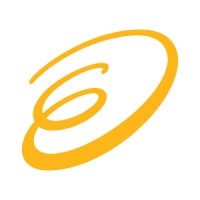
Grant and FundingOpen
Enbridge Gas Quebec — Custom-made project
Enbridge Gas QuebecSupports energy-saving projects using natural gas in buildings
Eligible Funding
- Maximum amount : 75,000 $
- Up to 40% of project cost
Eligible Industries
- Utilities
- Construction
- Manufacturing
- Wholesale trade
Types of eligible projects
Environment and Climate

Tax CreditsOpen
Additional deduction for transportation costs for manufacturing SMEs
Revenu QuébecTax deduction for manufacturing SMEs' transportation costs in remote areas
Eligible Funding
- Up to 25% of project cost
Eligible Industries
- Manufacturing
Types of eligible projects

Grant and FundingClosed
Aid measure for the decarbonization of Quebec's industrial sector (MADI)
Environnement Québec (MELCC)Supports Quebec industrial decarbonization projects for reduced GHG emissions
Eligible Funding
- No Condition
Eligible Industries
- Mining, quarrying, and oil and gas extraction
- Manufacturing
Types of eligible projects
TechnologyEnvironment and ClimateInnovation

Grant and FundingOpen
Regions and Rurality Fund (RRF) - Component 1 - Support for regional outreach
Gouvernement du QuébecSupports regional projects impacting Quebec's territories and communities
Eligible Funding
- From $100,000 to $3,000,000
- Up to 80% of project cost
Eligible Industries
- Agriculture, forestry, fishing and hunting
- Utilities
- Construction
- Manufacturing
Types of eligible projects
Environment and ClimateInnovation
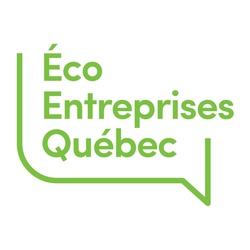
Grant and FundingClosed
Eco-design incentive bonus
Eco Entreprises Quebec (EEQ)The ÉEQ Ecodesign Incentive Bonus Program rewards companies for sustainable packaging innovations, offering up to a 50% contribution credit.
Eligible Funding
- From $5,000 to $60,000
- Up to 50% of project cost
Eligible Industries
- Manufacturing
Types of eligible projects
Environment and Climate
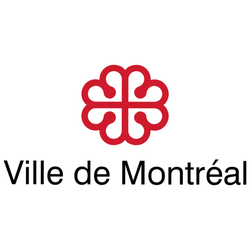
Grant and FundingExpert AdviceOpen
Grant for a circular economy assessment
City of Montreal (MTL)Supports businesses in Montreal adopting circular economy practices
Eligible Funding
- Maximum amount : 15,000 $
- Up to 75% of project cost
Eligible Industries
- Manufacturing
- Professional, scientific and technical services
- Administrative and support, waste management and remediation services
- Other services (except public administration)
Types of eligible projects
Environment and Climate
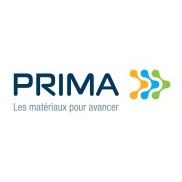
Grant and FundingClosed
PRIMA — Call for Projects
Advanced Materials Research and Innovation Hub (PRIMA)Funding for collaborative advanced materials R&D projects in Quebec
Eligible Funding
- Maximum amount : 1,500,000 $
- Up to 40% of project cost
Eligible Industries
- Manufacturing
- Transportation and warehousing
- Health care and social assistance
Types of eligible projects
TechnologyInnovation
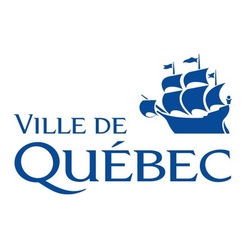
Grant and FundingExpert AdviceOpen
Guidance grants
Quebec CityFunding for business growth through specialized consulting services
Eligible Funding
- Maximum amount : 25,000 $
- Up to 30% of project cost
Eligible Industries
- Agriculture, forestry, fishing and hunting
- Utilities
- Manufacturing
- Information and cultural industries
Types of eligible projects
Artificial Intelligence (AI)TechnologyEnvironment and ClimateInnovationDigital Transformation
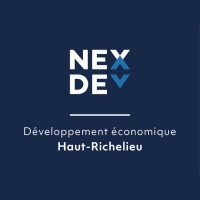
Grant and FundingExpert AdviceOpen
Productivity and Sustainable Innovation Fund – Stream 1: Company consultations/micro-diagnosis and selection assistance
NexDev | Haut-Richelieu Economic DevelopmentFinancial support for productivity and innovation in local industries
Eligible Funding
- Maximum amount : 10,000 $
- Up to 50% of project cost
Eligible Industries
- Manufacturing
- Wholesale trade
- Transportation and warehousing
- Other services (except public administration)
Types of eligible projects
Artificial Intelligence (AI)TechnologyInnovationDigital Transformation

Grant and FundingExpert AdviceOpen
Productivity and Sustainable Innovation Fund – Component 2: Feasibility study - audit towards a 4.0 transition
NexDev | Haut-Richelieu Economic DevelopmentFinancial support for industrial digital transformation and productivity improvement
Eligible Funding
- Maximum amount : 5,000 $
- Up to 50% of project cost
Eligible Industries
- Manufacturing
- Wholesale trade
- Transportation and warehousing
Types of eligible projects
TechnologyInnovationDigital Transformation

Grant and FundingOpen
Program to support research and development of products made from reused and recycled end-of-life tires
Recyc-QuébecSupports innovative projects using recycled end-of-life tires
Eligible Funding
- Maximum amount : 75,000 $
- Up to 75% of project cost
Eligible Industries
- Manufacturing
- Administrative and support, waste management and remediation services
Types of eligible projects
CommercializationEnvironment and ClimateInnovation

Loans and Capital investmentsClosed
DEL — Equipment and Technology Loan
Développement économique de l'agglomération de Longueuil (DEL)Enhance business efficiency through financing equipment and technology investments
Eligible Funding
- Maximum amount : 150,000 $
- Up to 50% of project cost
Eligible Industries
- Manufacturing
Types of eligible projects
Technology

Grant and FundingArchived
Business Growth — Growth support vouchers
Quebec CityGrant program supports strategic consultancy for business growth
Eligible Funding
- Maximum amount : 25,000 $
- Up to 50% of project cost
Eligible Industries
- Manufacturing
- Information and cultural industries
- Finance and insurance
- Professional, scientific and technical services
Types of eligible projects
TechnologyEnvironment and ClimateInnovation
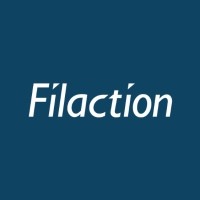
Loans and Capital investmentsOpen
Mosaic Fund
FilactionBusiness loans for Quebec's cultural communities entrepreneurs
Eligible Funding
- From $50,000 to $500,000
Eligible Industries
- Construction
- Manufacturing
- Wholesale trade
- Retail trade
Types of eligible projects
Business Buyout
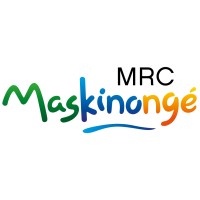
Grant and FundingOpen
MRC Maskinongé — Young Entrepreneurs
MRC de MaskinongéYouth Entrepreneur Fund supports young business creation and acquisition
Eligible Funding
- Maximum amount : 14,000 $
Eligible Industries
- Manufacturing
Types of eligible projects
Business Buyout
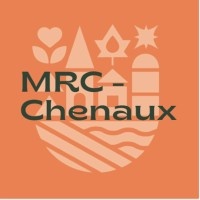
Grant and FundingOpen
MRC des Chenaux — Young Promoters Fund
MRC des ChenauxSupport for young entrepreneurs in MRC des Chenaux
Eligible Funding
- Maximum amount : 11,000 $
- Up to 80% of project cost
Eligible Industries
- Agriculture, forestry, fishing and hunting
- Manufacturing
- Professional, scientific and technical services
- Arts, entertainment and recreation
Types of eligible projects
Business Buyout

Grant and FundingClosed
Rural Vitality Fund – Automation and Digital Practices
NexDev | Haut-Richelieu Economic DevelopmentFinancial support for rural businesses advancing automation and digitalization
Eligible Funding
- From $1,000 to $5,000
- Up to 10% of project cost
Eligible Industries
- Manufacturing
- Retail trade
- Other services (except public administration)
- Public administration
Types of eligible projects
TechnologyDigital Transformation
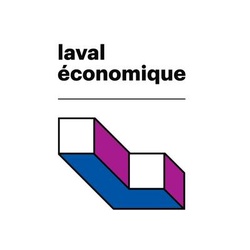
Grant and FundingClosed
Laval économique — Tech shift – Manufacturing
Laval EconomiqueDigital transformation grants for Laval manufacturers
Eligible Funding
- Maximum amount : 75,000 $
- Up to 25% of project cost
Eligible Industries
- Manufacturing
Types of eligible projects
Artificial Intelligence (AI)Digital Transformation

Grant and FundingOpen
Enbridge Gas Quebec — Cash incentives – Innovation
Enbridge Gas QuebecSupports innovative projects for natural gas efficiency and GHG reduction
Eligible Funding
- Maximum amount : 25,000 $
- Up to 75% of project cost
Eligible Industries
- Utilities
- Manufacturing
- Professional, scientific and technical services
- Educational services
Types of eligible projects
Environment and ClimateInnovation

Other SupportOpen
Temporary Foreign Worker Program (TFW) — Positions in QC
Employment and Social Development Canada (ESDC)Skilled foreign workers for Quebec companies
Eligible Funding
- No Condition
Eligible Industries
- Agriculture, forestry, fishing and hunting
- Construction
- Manufacturing
- Retail trade
Types of eligible projects
Human Resources

Partnering and CollaborationGrant and FundingClosed
PRIMA — SI2TEC – Feasibility Studies
Advanced Materials Research and Innovation Hub (PRIMA)Supports feasibility studies for circular economy projects in Québec
Eligible Funding
- Maximum amount : 75,000 $
- Up to 50% of project cost
Eligible Industries
- Manufacturing
- Professional, scientific and technical services
- Administrative and support, waste management and remediation services
Types of eligible projects
TechnologyEnvironment and ClimateInnovation

Grant and FundingWage Subsidies And InternsClosed
Regional Initiatives Fund (FAIR)
Ministère de l'économie, de l'innovation et de l'énergie du Québec (MEIE)Supports economic development and innovation in Gaspésie–Îles-de-la-Madeleine region
Eligible Funding
- Maximum amount : 150,000 $
- Up to 90% of project cost
Eligible Industries
- Agriculture, forestry, fishing and hunting
- Utilities
- Construction
- Manufacturing
Types of eligible projects
CommercializationTechnologyEnvironment and ClimateHuman ResourcesInnovation

Grant and FundingClosed
Economic Diversification Fund (FDE) for the MRC des Sources territory
Ministère de l'économie, de l'innovation et de l'énergie du Québec (MEIE)Supports economic diversification and business development in MRC des Sources
Eligible Funding
- No Condition
Eligible Industries
- Construction
- Manufacturing
- Wholesale trade
- Retail trade
Types of eligible projects
Human ResourcesInnovation
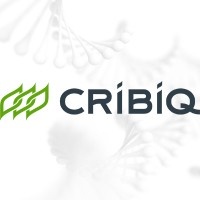
Grant and FundingArchived
CRIBIQ — PSO-Bioproducts and bioprocesses
Consortium de recherche et d'innovations en bioprocédés industriels au Québec (CRIBIQ)Innovative support for bioproducts and bioprocesses development
Eligible Funding
- Maximum amount : 1,500,000 $
- Up to 40% of project cost
Eligible Industries
- Agriculture, forestry, fishing and hunting
- Manufacturing
- Professional, scientific and technical services
Types of eligible projects
CommercializationEnvironment and ClimateInnovation

Grant and FundingClosed
SME in action
Ministère de l'économie, de l'innovation et de l'énergie du Québec (MEIE)Supports Quebec SMEs in productivity, growth, and competitiveness
Eligible Funding
- No Condition
Eligible Industries
- Manufacturing
Types of eligible projects
TechnologyHuman ResourcesBusiness BuyoutInnovationDigital Transformation

Grant and FundingClosed
Pierre Péladeau Scholarships
AsterXFunding and support for innovative university student entrepreneurs in Quebec
Eligible Funding
- Maximum amount : 75,000 $
Eligible Industries
- Agriculture, forestry, fishing and hunting
- Mining, quarrying, and oil and gas extraction
- Manufacturing
- Retail trade
Types of eligible projects
Artificial Intelligence (AI)TechnologyEnvironment and ClimateHuman ResourcesInnovation

Grant and FundingClosed
PRIMA — INNOV-R
Advanced Materials Research and Innovation Hub (PRIMA)Funding for GHG-reduction projects in Quebec
Eligible Funding
- Maximum amount : 500,000 $
- Up to 50% of project cost
Eligible Industries
- Manufacturing
- Professional, scientific and technical services
Types of eligible projects
TechnologyEnvironment and ClimateInnovation

Researchers And FacilitiesExpert AdviceOpen
Synchronex
CCTT Network - SynchronexResearch centres and technical experts across Quebec
Eligible Funding
- No Condition
Eligible Industries
- Agriculture, forestry, fishing and hunting
- Manufacturing
- Transportation and warehousing
- Professional, scientific and technical services
Types of eligible projects
Technology
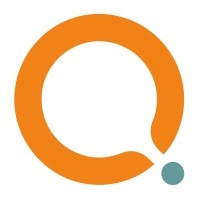
Other SupportClosed
Circular Initiatives Awards
Circular QuébecRecognizes innovative circular economy initiatives across Quebec organizations
Eligible Funding
- No Condition
Eligible Industries
- Manufacturing
- Administrative and support, waste management and remediation services
- Educational services
- Other services (except public administration)
Types of eligible projects
Environment and ClimateInnovation

Grant and FundingOpen
ID Gatineau — Business Support Fund
ID GatineauNon-repayable financial support for business growth in Gatineau
Eligible Funding
- Maximum amount : 25,000 $
- Up to 50% of project cost
Eligible Industries
- Manufacturing
Types of eligible projects
CommercializationEnvironment and ClimateConstruction and Renovation Human ResourcesInnovation

Grant and FundingOpen
Recyc-Québec — Support for R&D in recycling
Recyc-QuébecFunds to manage used tires
Eligible Funding
- Maximum amount : 75,000 $
- Up to 75% of project cost
Eligible Industries
- Manufacturing
- Administrative and support, waste management and remediation services
Types of eligible projects

Expert AdviceOpen
SADC-CAE — Virage Vert Program
Réseau des SADC et CAESupport for sustainable development projects in Quebec regions
Eligible Funding
- No Condition
Eligible Industries
- Agriculture, forestry, fishing and hunting
- Manufacturing
- Transportation and warehousing
- Professional, scientific and technical services
Types of eligible projects
Environment and Climate

Grant and FundingClosed
2023 Call for Proposals
Employment and Social Development Canada (ESDC)Funds to support youth volunteer programming and micro-projects
Eligible Funding
- Maximum amount : 8,000,000 $
Eligible Industries
- Agriculture, forestry, fishing and hunting
- Mining, quarrying, and oil and gas extraction
- Utilities
- Construction
Types of eligible projects

Grant and FundingClosed
BOLT Grant Program
Internet Society FoundationSupports projects expanding global Internet connectivity through prototypes and pilots.
Eligible Funding
- Maximum amount : 300,000 $
Eligible Industries
- Agriculture, forestry, fishing and hunting
- Mining, quarrying, and oil and gas extraction
- Utilities
- Construction
Types of eligible projects

Grant and FundingClosed
PRIMA — PARTENAR-IA — Academic
Advanced Materials Research and Innovation Hub (PRIMA)Funding for Quebec R&D collaborations in AI for advanced materials
Eligible Funding
- Maximum amount : 500,000 $
- Up to 50% of project cost
Eligible Industries
- Manufacturing
Types of eligible projects
Artificial Intelligence (AI)

Tax CreditsArchived
Capital Synergie
Investissement Québec (IQ)Supports business investment in innovative, high-growth Quebec companies
Eligible Funding
- Maximum amount : 225,000 $
- Up to 30% of project cost
Eligible Industries
- Manufacturing
- Information and cultural industries
- Professional, scientific and technical services
Types of eligible projects
Artificial Intelligence (AI)TechnologyEnvironment and ClimateInnovation
Frequently asked questions about grants for plastic manufacturing in Quebec
Here are clear answers to common questions about Quebec manufacturing grants, plastics funding, eligibility, programs, deadlines, and stacking rules.
What grants exist for injection molding in Quebec?
How do stacking rules work for Quebec plastics grants?
Which programs support recycling and circular economy projects?
Can we finance new molds and tooling in Quebec?
What qualifies as Industry 4.0 or digital transformation in plastics?
Are there grants for energy efficiency in extrusion plants?
How do we combine SR&ED with Quebec grants?
What documents are required for a strong application?
Are there grants for ISO 13485 or food‑grade compliance?
How long does approval take for Quebec manufacturing funding?
What else should I know about Grants and Funding for Plastic Manufacturing in Quebec?
Find similar grants
By Funding Type
By Business Size
By Service
By Audience
By Industry
Education Grants in Quebec
Grants and Funding for Culture in Quebec
Grants and Funding for Financial Services in Quebec
Grants and Funding for Green Manufacturing and Decarbonization in Quebec
By Industry Subsectors
By Administrative Region
Grants and Funding in Abitibi-Témiscamingue
Grants and Funding in Bas-Saint-Laurent
Grants and Funding in Capitale-Nationale
Grants and Funding in Centre-du-Québec
Grants and Funding in Chaudière-Appalaches
Grants and Funding in Côte-Nord